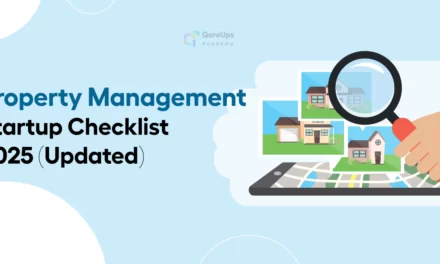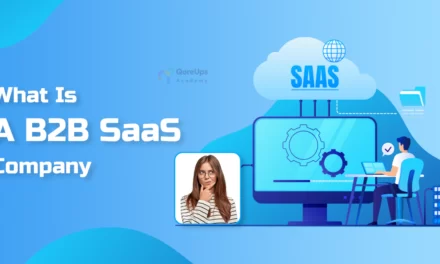Starting a party rental business from home is an exciting and potentially profitable venture.
With a relatively low initial investment, you can launch a business that brings joy to people’s lives and events.
This blog will guide you through the essential steps and considerations to get your party rental business off the ground for just $49/month.
What Is A Party Rental Business?
A party rental business provides various items needed for events, such as tables, chairs, tents, decorations, inflatables, and more.
Clients typically rent these items for weddings, birthdays, corporate events, and other gatherings.
The primary goal of a party rental business is to supply essential equipment and decor to make events special and memorable.
The range of rental items can be extensive, including:
- Tents and canopies
- Tables and chairs
- Linens and tableware
- Lighting and sound equipment
- Party games and inflatables
- Photo booths and props
By offering these items, a party rental business saves clients the hassle of purchasing items they might only need once, making event planning more convenient and cost-effective.
Is Party Rental Business Profitable?
The profitability of a party rental business can be significant, depending on factors like location, market demand, and effective management.
Let’s see the reasons that will answer “Is party rental business profitable?”
High Demand
There is a consistent demand for party rental services as people regularly host weddings, birthdays, corporate events, etc. The need for party rentals increases during peak seasons like summer and holidays.
Recurring Revenue
Many events are annual or seasonal, providing opportunities for repeat business. Building relationships with clients and event planners can lead to consistent revenue streams.
Low Overhead Costs
Starting a party rental business from home helps minimize overhead costs. By operating from home, you save on rental space and can use your existing storage areas initially.
Scalability
A party rental business can start small and scale up as demand grows. You can reinvest profits to expand your inventory and services over time.
High-Profit Margins
Rental items can be used multiple times, generating ongoing revenue from the same initial investment. Proper maintenance and care of rental items can extend their lifespan, increasing profitability.
What Do I Need To Start A Party Rental Business
Starting a party rental business from home requires some essential items and resources. Get started with the checklist below.
Basic Inventory
Start with high-demand items such as tables, chairs, and tents. These items are versatile and can be used for various types of events.
Cleaning and Maintenance Supplies
Keep your rental items in excellent condition by investing in cleaning and maintenance supplies. This includes cleaning solutions, repair kits, and protective covers.
Transportation
A reliable vehicle is necessary for delivering and picking up rental items. If you don’t have a suitable vehicle, consider renting one as needed.
Storage Space
Organize a dedicated storage area in your home for your inventory. Ensure the space is clean, dry, and secure.
Business License and Insurance
Get the necessary business licenses and permits to operate a party rental business from home legally.
Invest in liability insurance to protect your business and clients in case of accidents or damages.
Marketing Materials
Create business cards, flyers, and brochures to promote your services. Use free or low-cost design tools like Canva to create professional-looking materials.
Party Rental Business Plan
Creating a comprehensive business plan is crucial for the success of your party rental business from home.
Let’s break down what your business plan should include.
Market Research
Identify your target market and research the demand for party rental services in your area. Understand the competition, pricing strategies, and the types of events people commonly host.
Business Structure
Decide whether you will operate as a sole proprietor, partnership, or limited liability company (LLC). Legal and Tax implications differ depending on the type of business.
Services Offered
Determine the range of items you will rent out. Start with basic, high-demand items like tables, chairs, and tents, and gradually expand your inventory as your business grows.
Pricing Strategy
Prepare a competitive pricing strategy that covers the cost and provides a reasonable profit margin.
Consider offering package deals and discounts for repeat customers.
Marketing Plan
Outline your strategies for reaching potential customers. This might include a website, social media presence, local advertising, and partnerships with event planners and venues.
Financial Plan
Estimate your startup costs, monthly expenses, and projected revenue. Include a detailed budget and plan for managing cash flow.
Legal Requirements
Research and comply with all necessary licenses, permits, and insurance requirements for operating a party rental business in your area.
Creating a rental business model for a party rental business using the Business Model Canvas (BMC) involves detailing each of the nine key elements: Customer Segments, Value Propositions, Channels, Customer Relationships, Revenue Streams, Key Resources, Key Activities, Key Partnerships, and Cost Structure.
How To Start A Party Rental Business From Home At $49/Month
Starting a party rental business from home on a budget is feasible with careful planning and resourcefulness.
Let’s see the step-by-step guide to help you get started with just $49/month.
Choose a Niche
Identify a specific niche within the party rental market that you can cater to.
This could be children’s parties, corporate events, or weddings.
Focusing on a niche allows you to target your marketing efforts effectively and build a loyal customer base.
Create a Marketplace Website
A professional online presence is essential.
Create a marketplace website for the party using platforms like QMarket, which offers affordable plans starting at around $49/month.
Ensure your website includes information about your services, pricing, and contact details.
Utilize Free Marketing Tools
Leverage social media platforms like Facebook, Instagram, and Pinterest to promote your business.
Create engaging content, share customer testimonials, and showcase your rental items.
Join local community groups and participate in discussions to increase visibility.
Offer Pre-Booking Discounts
To attract your first customers, offer discounts for pre-bookings.
This helps you secure initial bookings and build momentum for your business.
Rent or Lease Equipment
Instead of purchasing all your equipment upfront, consider renting or leasing items initially.
Look for rental companies that offer flexible terms and affordable rates.
As your business grows, you can gradually invest in your own inventory.
Partner with Local Businesses
Build relationships with local event planners, caterers, and venues. Offer them a commission for referrals or collaborate on joint marketing efforts. This can help you tap into their existing customer base and generate leads.
Save on Storage Costs
Start by using your garage, basement, or any available space in your home for storage.
As your inventory grows, you can look for affordable storage solutions or negotiate with local businesses for shared storage space.
How Much Money Do You Need To Start A Party Rental Business In 2024
Starting a party rental business from home doesn’t have to be expensive.
Let’s break down the costs you might incur when starting a party rental business from home with a budget of $49/month:
Website and Domain
The main factor that attracts the customer is having a professional online presence.
Platforms like QMarket offer affordable plans to clarify how much money do you need to start a party rental business including hosting, easy-to-use templates, and customization options.
Ensure your website is optimized for search engines (SEO) to attract local customers searching for party rental services.
Marketing and Advertising
Leveraging free marketing tools can significantly reduce your initial costs.
Social media platforms like Facebook, Instagram, and Pinterest allow you to create business profiles and engage with potential customers at no cost.
Additionally, free tools like Google My Business can enhance your online visibility.
Focus on creating high-quality content, engaging with your audience, and using organic methods to build your brand.
Inventory
Initially, you can rent or lease equipment instead of purchasing it outright. Look for rental companies that offer flexible terms and affordable rates.
As your business grows and generates revenue, you can gradually invest in your inventory.
Alternatively, consider purchasing used equipment in good condition from online marketplaces or local sales to keep costs low.
Transportation
If you already own a suitable vehicle, use it for delivering and picking up rental items. This helps minimize transportation costs.
If you need to rent a vehicle occasionally, budget around $20-$30 per trip.
Ensure the vehicle is large enough to transport your inventory safely and efficiently.
Storage
Utilize available space in your home, such as a garage, basement, or spare room, for storing your inventory.
This saves on storage costs initially.
As your inventory grows, you may need to explore affordable storage solutions or negotiate with local businesses for shared storage space.
Licensing and Insurance
Business licenses and permits vary in cost depending on your location. Budget around $50-$100 for initial licensing.
Liability insurance, essential for protecting your business and clients, can cost around $20-$30 per year.
Shop around for insurance providers to find the best rates and coverage for your business needs.
Miscellaneous Expenses
Allocate a small budget for cleaning supplies, maintenance tools, and office supplies, around $10 per month initially.
Regularly review and adjust your budget to ensure all expenses are covered and to accommodate any unexpected costs.
Example Budget Breakdown:
- Website and Domain: $49/month
- Marketing and Advertising: Using free tools
- Licensing and Insurance: $20-$30/year
- Inventory: Rent or lease initially
- Transportation (Vehicle Rental): $20-$30/month (as needed)
- Miscellaneous Expenses: $10/month
Total Monthly Budget: $49-$52
By carefully managing your expenses and leveraging available resources, you can start and grow your party rental business from home with a budget-friendly approach.
Focus on providing excellent customer service, maintaining your equipment, and building a strong reputation to ensure long-term success.
Conclusion
Starting a party rental business from home at $49/month with a free trial is not only possible but also a smart way to enter the event industry with minimal financial risk.
With careful planning, strategic marketing, and a commitment to customer satisfaction, you can build a profitable and sustainable business.
The key to success lies in understanding your market, managing your resources efficiently, and continuously seeking opportunities for growth and improvement.
A party rental business offers a unique opportunity to combine creativity with entrepreneurship.
By providing essential services that enhance special occasions, you play a pivotal role in creating memorable experiences for your clients.
With dedication and strategic planning, your home-based party rental business can thrive and grow, bringing joy to countless events and celebrations.
So why wait? Take the first step towards entrepreneurship today and embark on your journey to becoming a successful party rental business owner!






